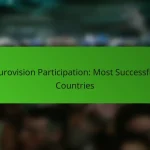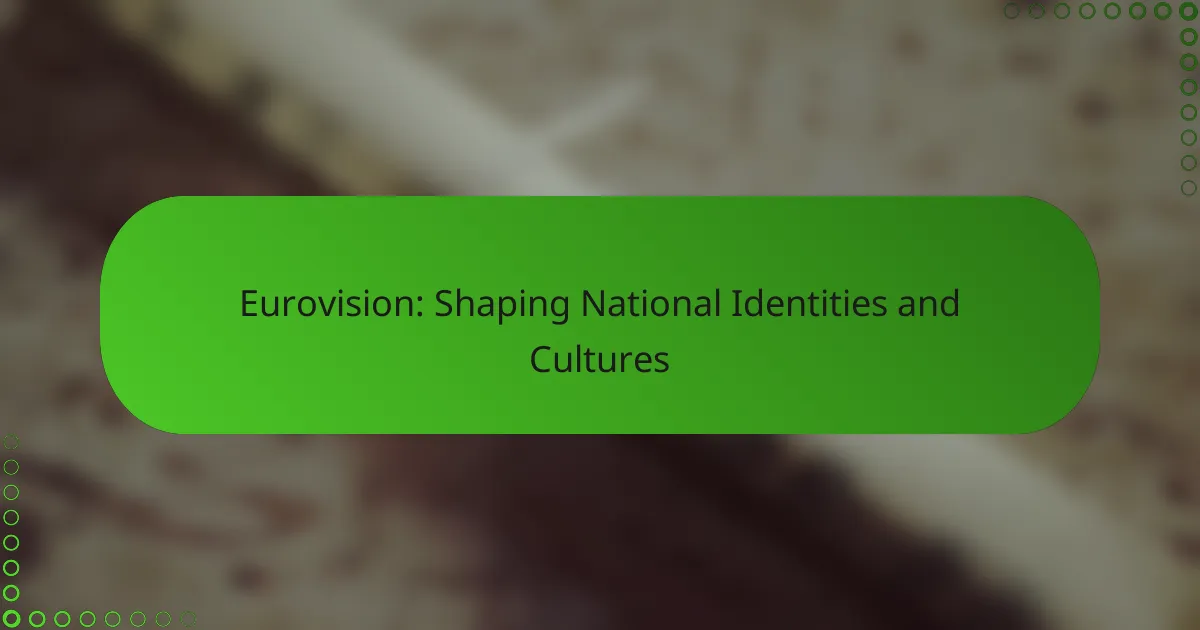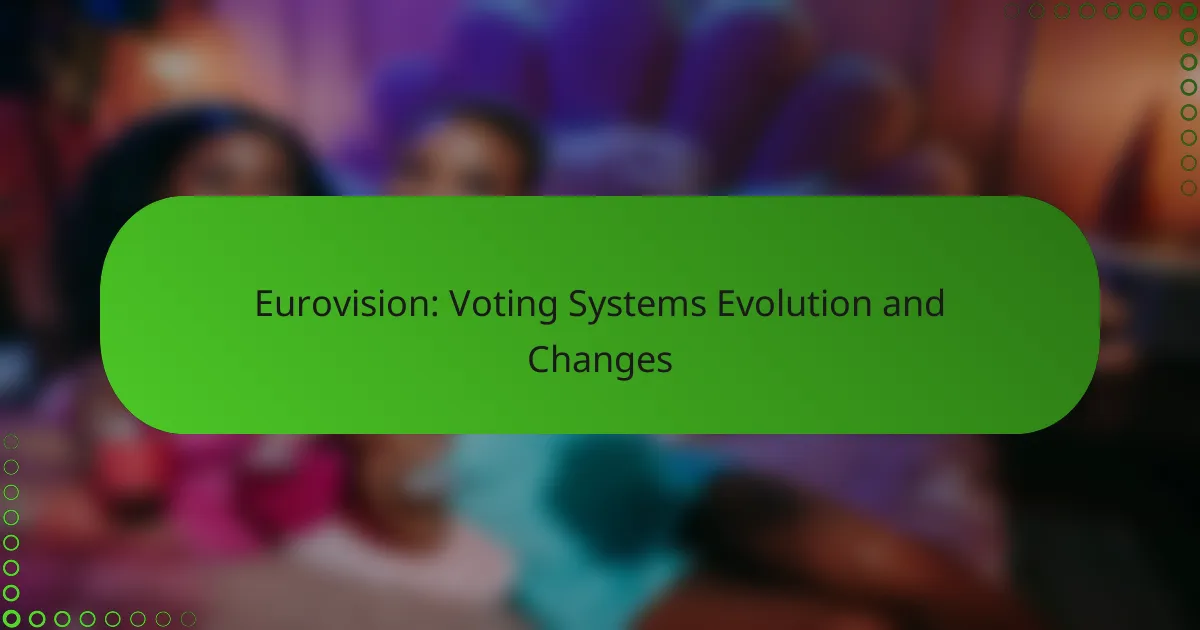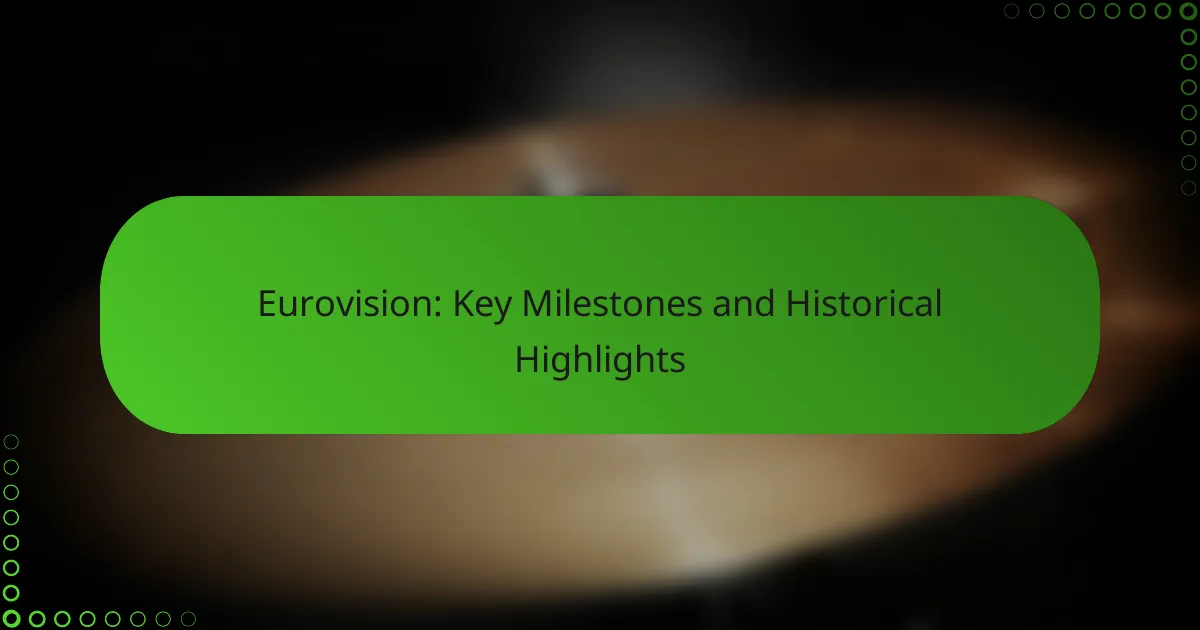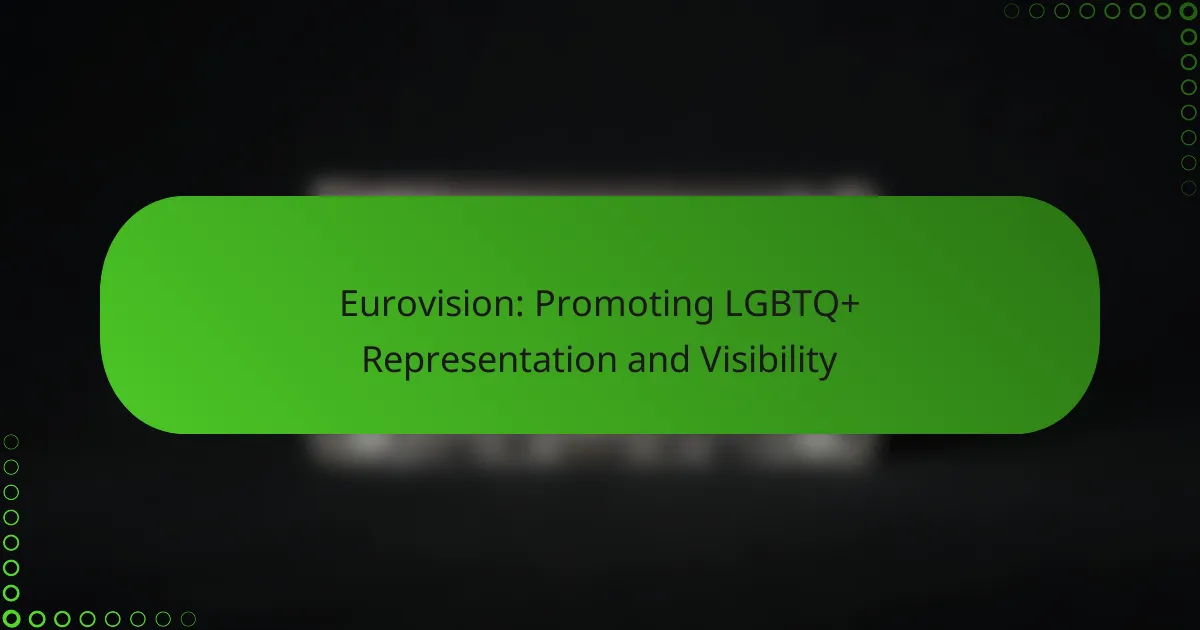The Eurovision Song Contest plays a pivotal role in shaping national identities across Europe by offering countries a vibrant platform to display their distinct cultures and musical traditions. This annual event not only fosters a sense of pride and belonging among citizens but also promotes cultural exchange and understanding, allowing nations to convey their unique narratives and social messages through performance.
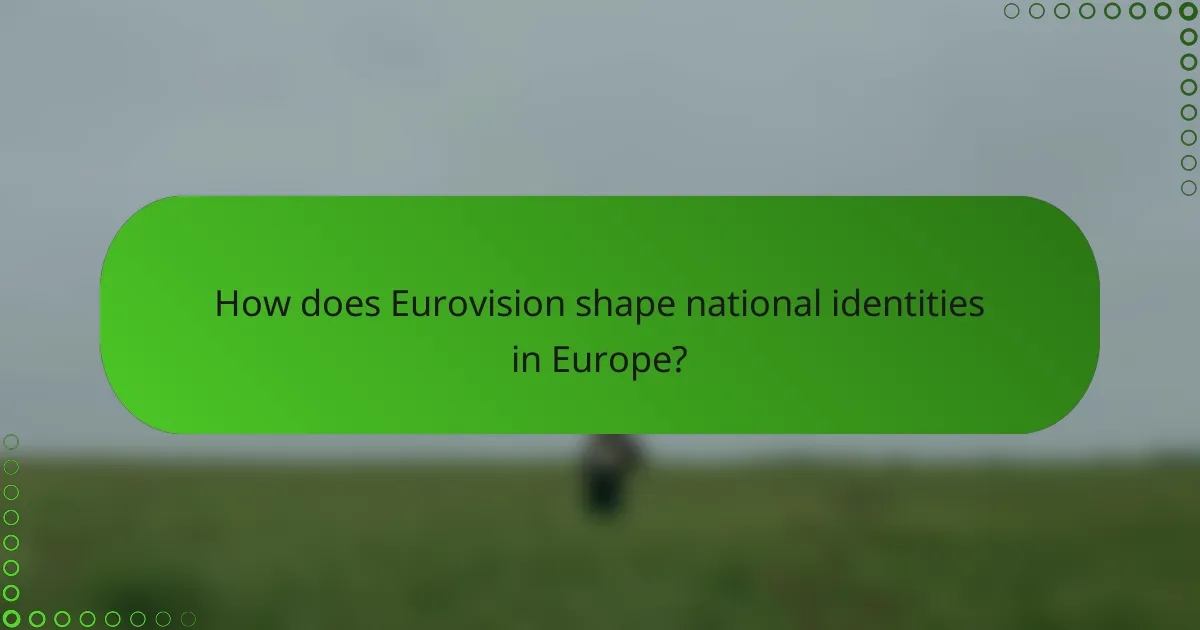
How does Eurovision shape national identities in Europe?
Eurovision shapes national identities in Europe by providing a platform for countries to showcase their unique cultures and musical styles, fostering a sense of belonging and pride among citizens. The competition encourages nations to express their cultural heritage while promoting unity and diversity across the continent.
Promotion of cultural diversity
Eurovision serves as a vibrant showcase for cultural diversity, allowing countries to present their distinct musical traditions and artistic expressions. Each participating nation often incorporates traditional instruments, languages, and styles, which enriches the overall experience and highlights the continent’s varied cultural tapestry.
This celebration of diversity not only entertains but also educates audiences about different cultures, fostering greater understanding and appreciation among viewers. For example, performances may feature folk dances or regional costumes, making the event a colorful representation of European heritage.
National pride and unity
Participating in Eurovision instills a sense of national pride and unity among citizens, as countries rally behind their representatives. The competition often becomes a focal point for national celebrations, with viewing parties and events that bring communities together.
Countries frequently leverage Eurovision to promote their national identity, using the event to highlight achievements in music and arts. This collective experience can strengthen social bonds and reinforce a shared sense of belonging, especially during times of political or economic challenges.
Influence on local music scenes
Eurovision significantly influences local music scenes by providing exposure to a wider audience, often leading to increased interest in various genres. Artists who perform in the competition can gain international recognition, which can boost their careers and inspire local musicians.
Moreover, the event encourages collaboration and experimentation among artists, as they seek to create unique entries that resonate with both national and international audiences. This cross-pollination of ideas can lead to the emergence of new musical trends and styles within local scenes, enriching the cultural landscape in participating countries.
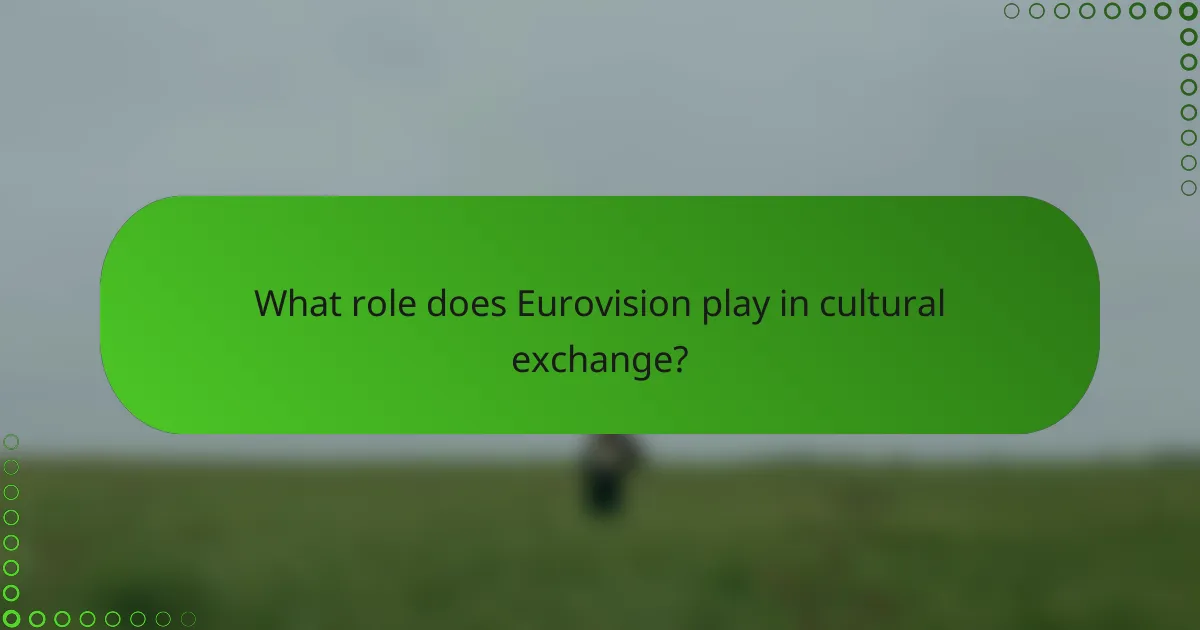
What role does Eurovision play in cultural exchange?
Eurovision serves as a significant platform for cultural exchange by bringing together diverse nations through music and performance. It fosters understanding and appreciation of different cultures, allowing countries to showcase their unique identities on an international stage.
Platform for international collaboration
Eurovision encourages collaboration among participating countries, often leading to partnerships in music production and artistic exchange. This collaboration can result in cross-cultural influences, where artists incorporate elements from other nations into their work, enriching their own cultural expressions.
Additionally, the event promotes dialogue and unity, as countries work together to create a shared experience. For instance, joint performances or co-hosting duties can strengthen ties between nations, enhancing diplomatic relations through the arts.
Showcasing emerging artists
Eurovision provides a vital platform for emerging artists to gain international exposure and recognition. Many participants use the contest as a launching pad for their careers, often leading to increased opportunities in the music industry.
For example, artists like Loreen from Sweden and Duncan Laurence from the Netherlands gained significant fame after their Eurovision wins. This exposure can help them reach wider audiences and secure record deals, illustrating how the contest can be a springboard for new talent.
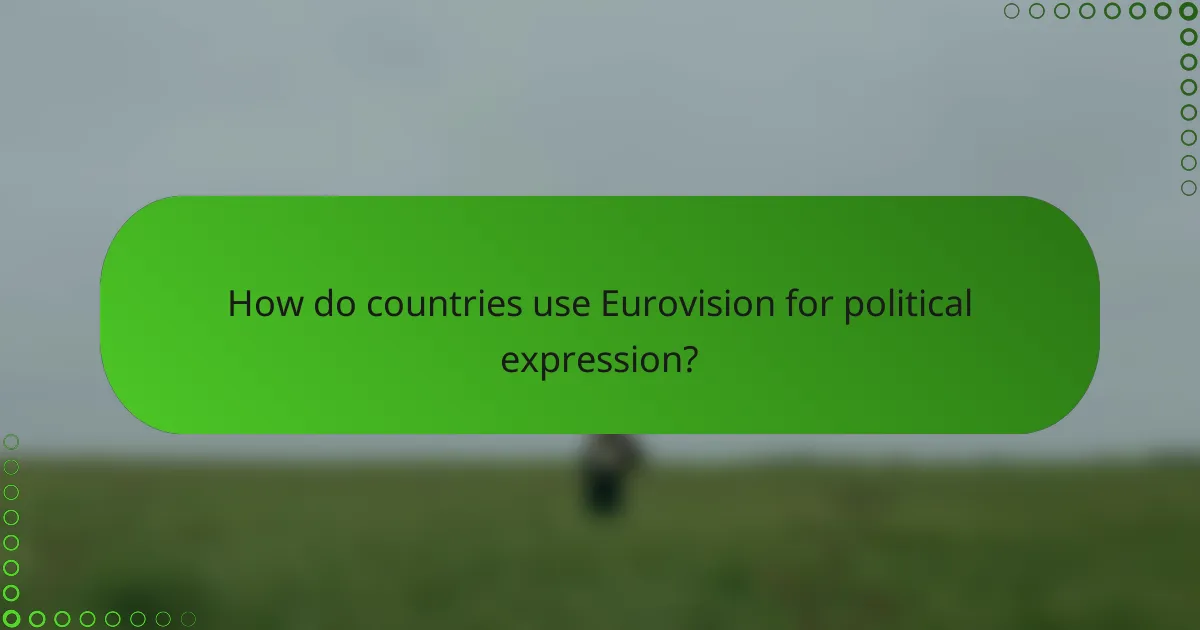
How do countries use Eurovision for political expression?
Countries utilize Eurovision as a platform for political expression by embedding national narratives and social messages into their performances. This event allows nations to showcase their cultural identity while subtly addressing political issues, fostering solidarity or making statements through music and visuals.
Messages of solidarity
Eurovision often serves as a stage for countries to express solidarity with one another, particularly during times of political tension or conflict. For example, nations may choose to highlight themes of unity and peace in their performances, sending a message of support to allies or marginalized groups.
In recent years, countries like Ukraine have used their entries to reflect resilience and solidarity amid conflict, resonating with audiences and garnering widespread support. Such messages can influence public perception and international relations, showcasing a nation’s stance on global issues.
Political statements through lyrics
Lyrics in Eurovision songs frequently contain political undertones, allowing artists to address social issues or critique governmental policies. For instance, songs may discuss topics such as [censured] rights, environmental concerns, or national identity, making bold statements that resonate with both domestic and international audiences.
Countries must navigate the fine line between artistic expression and political controversy, as overtly political messages can lead to backlash or disqualification. However, subtlety in lyrics can effectively communicate a nation’s position while still adhering to Eurovision’s regulations, making it a strategic tool for political expression.
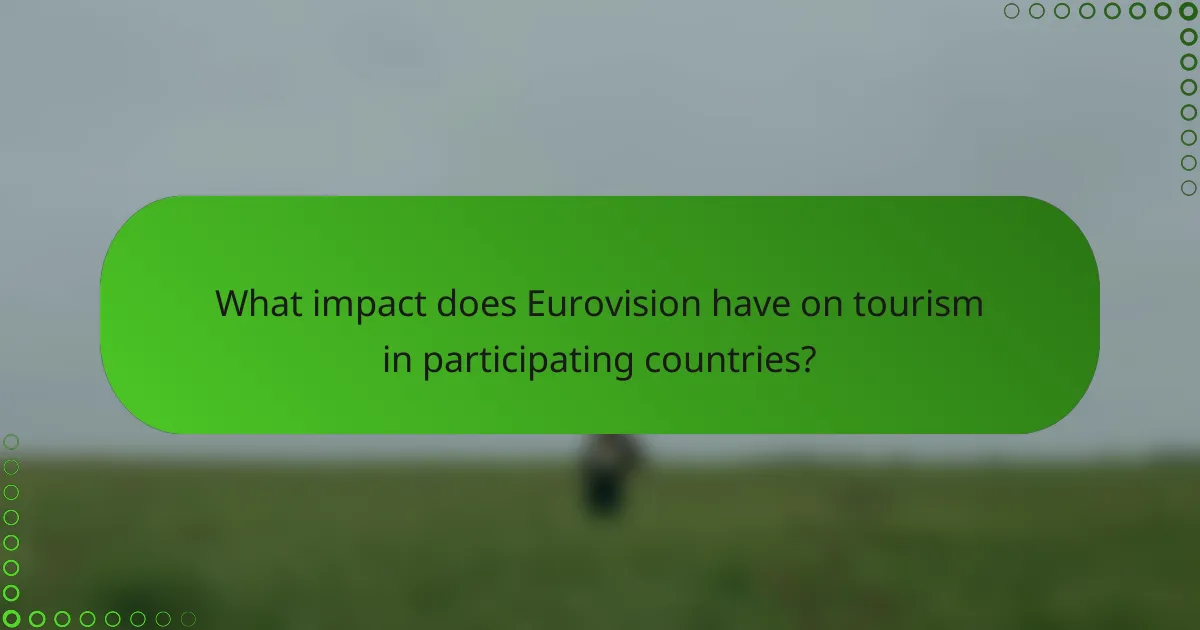
What impact does Eurovision have on tourism in participating countries?
Eurovision significantly boosts tourism in participating countries by attracting large numbers of visitors eager to experience the event and local culture. The influx of fans and media creates economic opportunities and highlights the host nation’s attractions.
Boost in visitor numbers
Hosting Eurovision often leads to a substantial increase in visitor numbers, with estimates suggesting that host cities can see tourism rise by 20-30% during the event. Fans travel from various countries, contributing to hotel bookings, restaurant visits, and local transportation usage.
For example, when Tel Aviv hosted Eurovision in 2019, the city welcomed tens of thousands of international visitors, resulting in a significant economic boost for local businesses. This surge can create lasting impressions, encouraging repeat visits in the future.
Promotion of local attractions
Eurovision serves as a platform to promote local attractions, showcasing cultural landmarks and unique experiences to a global audience. The event often features local artists, cuisine, and traditions, which can pique the interest of tourists.
For instance, during the 2021 Eurovision in Rotterdam, the city highlighted its museums, architecture, and vibrant nightlife, leading to increased visibility for these attractions. This promotion can enhance the host country’s image and encourage visitors to explore beyond the event itself.
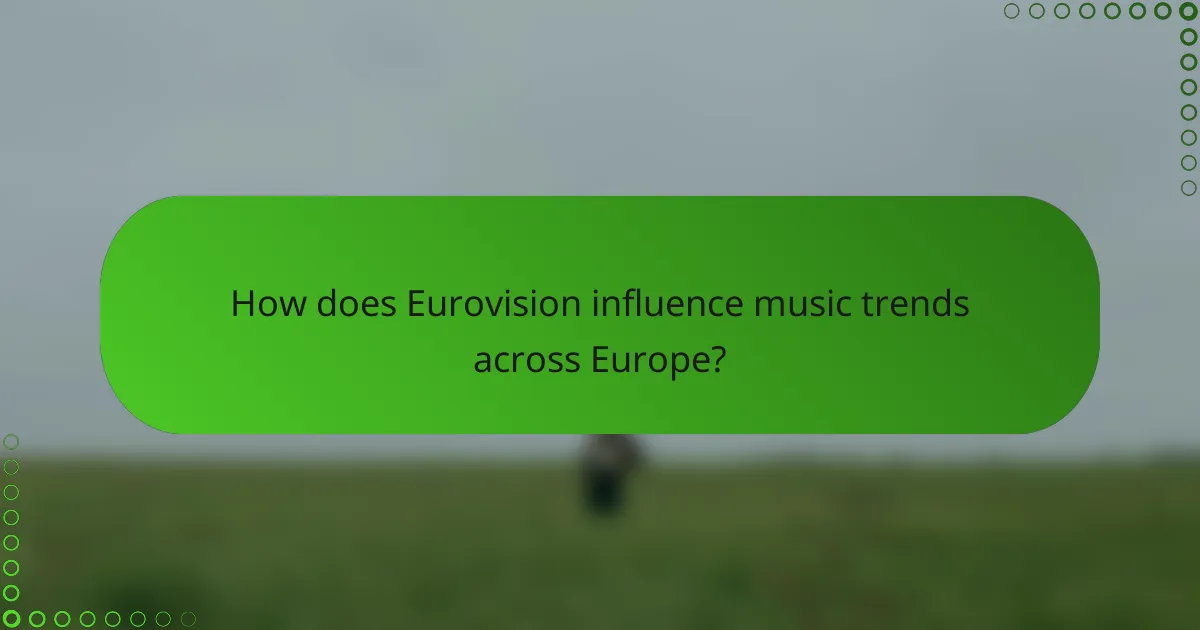
How does Eurovision influence music trends across Europe?
Eurovision significantly shapes music trends across Europe by introducing diverse styles and fostering innovation. The competition acts as a platform for emerging artists, allowing them to showcase their unique sounds and influences, which often ripple through the European music scene.
Emergence of new genres
Eurovision has been instrumental in the emergence of new music genres, blending traditional sounds with contemporary styles. For instance, the incorporation of electronic dance music and folk elements has led to the rise of hybrid genres that appeal to a broad audience.
Countries often experiment with their entries, leading to unique fusions that can inspire local artists. This trend encourages musicians to explore and innovate, resulting in a vibrant and evolving music landscape across Europe.
Cross-border collaborations
The competition fosters cross-border collaborations, as artists from different countries often work together to create entries. These partnerships can lead to the blending of cultural influences, resulting in songs that resonate with a wider audience.
Collaborations can also extend beyond the competition, as successful Eurovision participants often tour together or produce music that reflects their shared experiences. This interconnectedness enhances the cultural exchange and enriches the musical tapestry of Europe.
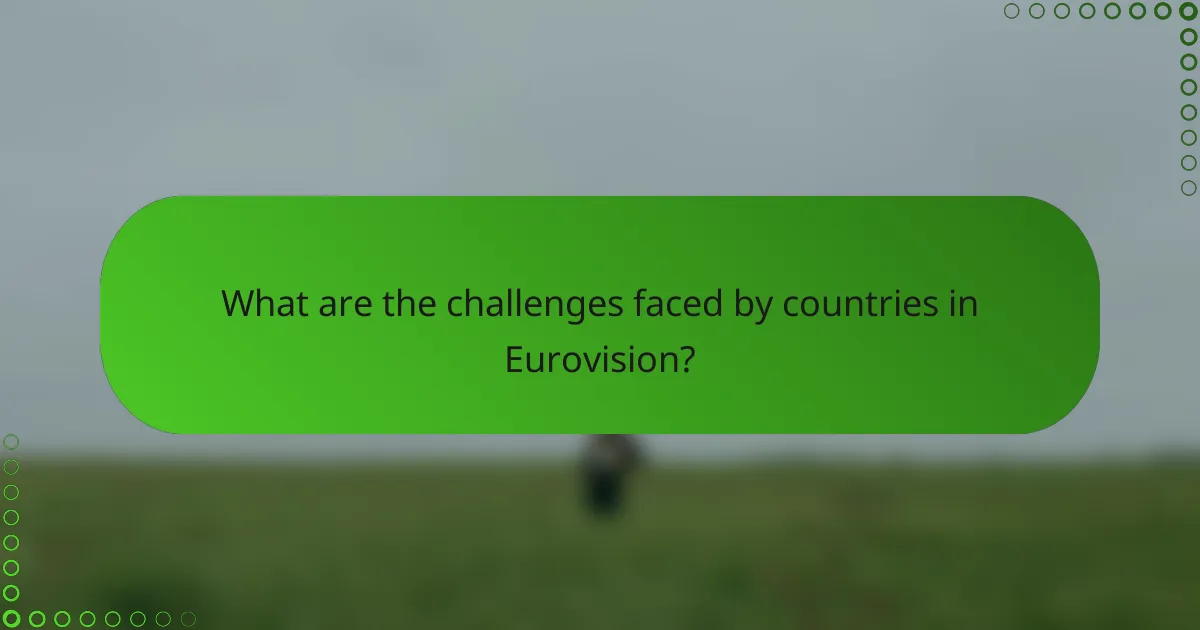
What are the challenges faced by countries in Eurovision?
Countries participating in Eurovision face several challenges, including the need to balance cultural representation with modern trends and navigating political tensions that can arise during the competition. These factors can significantly influence a country’s performance and public perception.
Balancing tradition and modernity
Countries must find a way to honor their musical heritage while appealing to contemporary audiences. This often involves blending traditional elements with modern sounds or styles, which can be tricky. For example, a nation might incorporate folk instruments into a pop song to create a unique entry that resonates with both older and younger viewers.
Successful entries typically reflect a country’s cultural identity while also embracing current musical trends. A good approach is to analyze past winners and identify how they balanced these aspects, ensuring that the performance feels both authentic and fresh.
Addressing political tensions
Political issues can heavily influence Eurovision, as countries may face backlash or support based on current international relations. For instance, nations with strained ties might experience voting biases, which can affect their chances of success. It’s crucial for participants to be aware of these dynamics when crafting their entries.
To mitigate potential political fallout, countries often focus on universal themes in their performances, such as love or unity, which can resonate across borders. Additionally, maintaining a neutral stance in messaging can help avoid alienating viewers from other nations.
